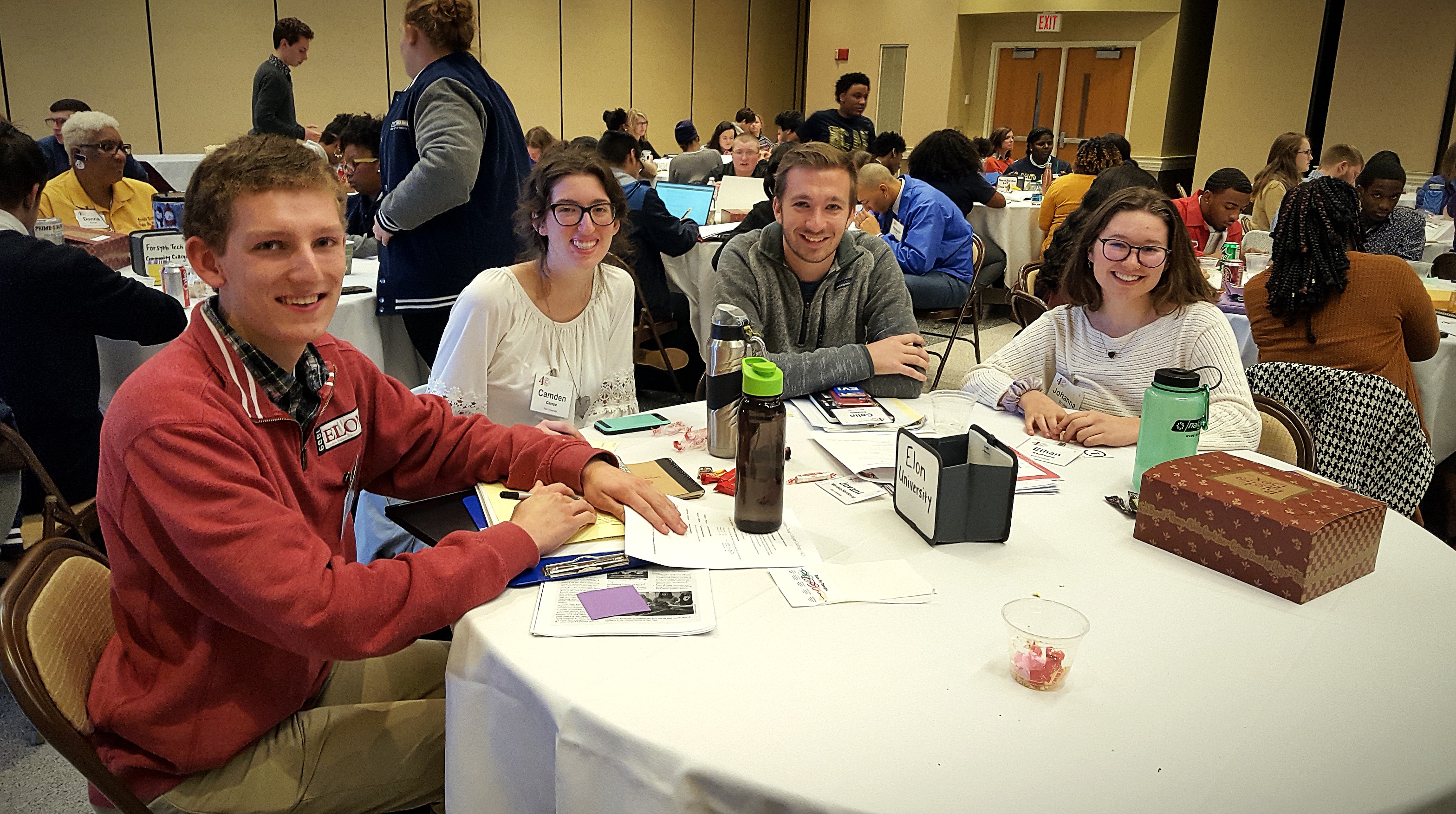The competition brought together 16 colleges or universities to propose action to address food insecurity and promote deliberative problem-solving.
Elon was named among four finalists in the inaugural North Carolina Campus Compact Community Change Collegiate Challenge (4C), an event meant to teach students to work together, using deliberative problem solving, to create solutions to issues facing their communities.
The challenge was part of Campus Compact’s annual student conference that focuses on promoting civic and social responsibility and community partnerships that bring positive change and strengthen democracy. In the first Community Change Collegiate Challenge, students were tasked with addressing and combatting food insecurity.
The event, which was hosted in Elon’s Moseley Center, challenged students from 16 North Carolina colleges or universities to propose ideas to address the issue. After a week of preparation and a session of National Issues Forum deliberative dialogue on the subject, each team was given time to come up with solutions, based on their dialogue, as well as guidance from Elon’s Director of Design Thinking Danielle Lake and keynote speaker Lindsey Haynes-Maslow, assistant professor of agricultural and human sciences at North Carolina State University.
Each team consisted of up to five civic-minded student leaders, ready to address the issue of hunger. The team of Elon students included Camden Campe ’20, Jo Crump ’21, Colin Deutsch ’20, Connor Jenkins ’21 and Mary Morrison, assistant dean of campus life and director of the Kernodle Center for Service Learning and Community Engagement.

The team from Elon proposed a coalition of key community members in Alamance County, including human services organizations, churches, government leaders and representatives from Elon, to discuss the community’s needs. A representative from the Kernodle Center would then work with community members to create service-learning courses at Elon to help address those needs. The goal would be to create a program in which the community drives decision-making and problem-solving and then uses university resources to bring change.
“It was so exciting to see that a lot of the ways we at Elon talk about how we do our work showed up in their presentation,” Morrison said “That respect for community, listening to the community, entering the community with a sense of humility and knowing that community members know what the solutions are, and that we partner with them to help address those needs. That’s a more sustainable approach than just dipping in and out of the community with ideas that may or may not be what they need or what they want.”
Morrison said she was proud to see Elon students valuing the voice of the community in their proposal, noting that this is the goal of the university’s service-learning model.
“What they will carry with them are the values and approaches and complex ways of thinking about community engaged work,” she said. “That’s what we’re preparing them for. Regardless of where they live, they are going to be engaged in their community in deep and respectful ways.”
North Carolina A&T State University and Elizabeth City State University finished first and second in the competition. Elon finished tied for third place along with the University of North Carolina at Chapel Hill.



